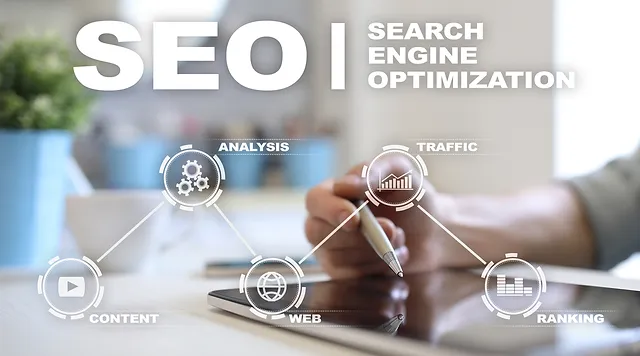In the bustling city of Denver, the transportation and logistics industry forms the backbone of commerce, connecting goods and services across the region. For businesses engaged in this sector, a strong online presence is essential to attract local clients and stand out in a competitive market. Search Engine Optimization (SEO) emerges as a powerful tool that can propel transportation and logistics companies to new heights. This article explores the ways in which SEO can be harnessed by Denver businesses in the transportation and logistics industry to target local clients and establish a robust online presence.
The Significance of Denver’s Transportation and Logistics Industry
Denver’s strategic location as a major hub in the western United States positions it as a focal point for transportation and logistics activities. With a thriving economy and a diverse range of businesses requiring transportation solutions, the industry plays a pivotal role in facilitating the movement of goods and services across the city and beyond.
The Role of SEO in the Transportation and Logistics Sector
In the digital era, a robust online presence is no longer optional—it’s essential. The transportation and logistics industry in Denver can capitalize on Denver SEO to ensure that their services are easily discoverable by local clients seeking efficient and reliable transportation solutions.
Local SEO for Targeted Visibility
Local SEO is the cornerstone of targeting local clients effectively. By optimizing for local searches, transportation and logistics businesses can position themselves as the go-to solution for companies seeking streamlined transportation services within the Denver area.
Effective Local SEO Strategies
Local Keyword Optimization: Research and incorporate local keywords that resonate with Denver businesses seeking transportation and logistics solutions. Examples include “Denver freight services,” “local trucking companies in Denver,” or “Denver logistics providers.”
Google My Business (GMB) Listing: Optimizing your GMB listing ensures that your business appears in local search results and on Google Maps. Complete your profile with accurate contact information, service descriptions, and high-quality images.
Content Strategy for Industry Insights
Creating compelling content that provides value to potential clients can position your transportation and logistics business as an industry expert.
Educational Content
Blog Posts: Craft informative blog posts about transportation trends, best practices for logistics, and insights into Denver’s unique transportation challenges. Sharing your expertise builds credibility and encourages potential clients to engage.
Case Studies: Showcase successful transportation projects you’ve undertaken in Denver. Detail the challenges faced and the innovative solutions your business provided. This adds depth to your online presence and showcases your capabilities.
Visual Impact and Image Optimization
Visuals are integral to the transportation and logistics industry. Optimizing images ensures that they not only attract attention but also contribute to SEO efforts.
Optimizing Visuals
Image Alt Tags: Include descriptive alt tags for images on your website. For instance, if showcasing Denver-based trucking services, use alt tags like “Denver trucking solutions” to enhance discoverability.
Image Quality and Compression: Utilize high-quality images that enhance user experience. Compress images to optimize load times without compromising on visual appeal.
Utilizing Social Media for Engagement
Social media platforms offer an avenue to engage with your audience, showcase your work, and drive traffic to your website.
Social Media Strategies
Visual Content: Share images and videos of your transportation operations, fleet, and projects. Platforms like LinkedIn, Instagram, and Facebook are well-suited for sharing compelling visual content.
Industry Insights: Share industry news, trends, and your insights on social media. Engaging posts can foster interactions with potential clients and contribute to SEO through increased social engagement.
Building Trust through Reviews and Testimonials
Client reviews and testimonials are powerful indicators of your trustworthiness and expertise.
Leveraging Positive Feedback
Encourage Reviews: Encourage satisfied clients to leave reviews on platforms like Google and industry-specific websites. Positive reviews not only enhance your reputation but also contribute to SEO rankings.
Testimonial Showcase: Dedicate a section on your website to showcase client testimonials and success stories. Personal accounts resonate with potential clients seeking reliable transportation services.
Mobile Optimization for On-the-Go Businesses
Given the dynamic nature of the transportation and logistics industry, mobile optimization is crucial.
Responsive Design
Mobile-Friendly Website: Design your website to adapt seamlessly to various screen sizes, ensuring an optimal user experience for mobile users.
Speed and Usability: Optimize page load times and streamline navigation for mobile users to encourage exploration and engagement.
Conclusion
Denver’s transportation and logistics industry forms the backbone of its bustling economy. With a strategic approach to SEO, businesses in this sector can establish a dominant online presence that resonates with local clients seeking efficient and reliable transportation solutions.
By embracing Local SEO, crafting compelling content, optimizing visuals, leveraging social media engagement, showcasing client testimonials, and ensuring mobile optimization, transportation and logistics businesses can solidify their position in the local market. In a city where efficient transportation is the lifeblood of commerce, effective SEO strategies can ensure that your business becomes the cornerstone of Denver’s dynamic transportation ecosystem, connecting businesses and services seamlessly.



